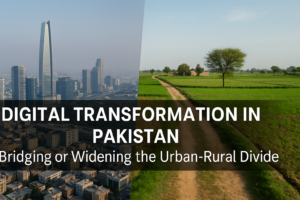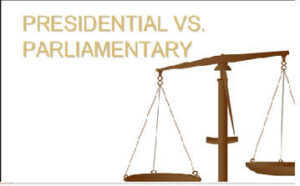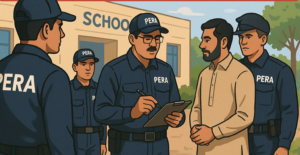Outline:
1. Introduction
Democracy and illiteracy are two concepts that have a complex relationship, and it can be argued that they don’t inevitably move together. Democracy is a political system that promotes the participation of citizens in decision-making, whilst illiteracy refers to the inability to read and write. Along with peace, hunger and disease, illiteracy is another a deep-rooted problem which remains a long way from being solved despite huge investments from government. Illiteracy has another contradictory point concerning to democracy which is its tendency to promote centralized control of power & authority. Illiteracy elicits & supports class disparities by holding the power & authority confined to a few hands only – and this thing kills the spirit of democracy.
2. Challenges of Illiteracy in Democracy:
Illiteracy can pose challenges to democracy as it may limit the ability of people to fully participate in the democratic process. In a democratic society, citizens are probable to engage in critical thinking, make informed decisions, and participate in discussions and debates. However, illiteracy can inhibit these abilities, as it can limit access to information, restrict the understanding of complex issues, and hinder effective communication. Illiterate citizens may confront troubles in understanding political candidates, evaluating policies, or engaging in debates, which can result in reduced participation in elections or decision-making processes. Before moving forward, let’s find out the various forms of democracy and illiteracy:
3. Various Forms of Democracy
- Direct democracy: Direct democracy is a system in which citizens directly participate in decision-making and policy formation without elected representatives, allowing for direct and immediate influence over laws and policies.
- Representative democracy: Representative democracy is a system in which citizens elect representatives to make decisions and enact policies on their behalf, based on the principle of indirect participation.
- Constitutional democracy: Constitutional democracy is a system of government in which the powers of the government are defined, limited, and regulated by a constitution, with an emphasis on protecting individual rights and upholding the rule of law.
- Monitory democracy: Monitory democracy is a concept that refers to a form of democracy in which non-elected institutions or organizations, such as civil society groups, media, and watchdog organizations, play a significant role in monitoring and holding the government and elected officials accountable for their actions and decisions.
4. Basic Types of Illiteracy
- Functional illiteracy: Incompetence in such basic functions as reading, writing, and mathematics.
- Cultural illiteracy: Lack of basic information needed to thrive in the modern world.
- Moral illiteracy: Absence of moral and religious values from educational institutions.
- Healthcare illiteracy: Inability to comprehend and use necessary medical information.
Now we understand the basic types of democracy and illiteracy, now deep down the challenges of illiteracy in democracy.
5. Facts That Prove That Democracy and Illiteracy Do Not Move Together
Various facts represent the reality that democracy and illiteracy and democracy don’t move together. Some of them are:
- Illiterate voters elect unsuitable political candidates as leaders
- Illiteracy favors low voters’ turnout
- Illiterate politicians don’t respect the democratic rights of people
- Illiteracy leads to a short-sighted approach in decision-making circles
- Illiteracy discourages devolution of power and authority
- Illiteracy leads to poor political accountability
- Illiteracy assents backwardness and marginalization of women
- Illiteracy leads to the unskilled labor force
- Illiteracy discourages the process of political evolution
- Illiterate masses do not demand transparency in Govt. affairs
- Illiterate people don’t raise voice against injustices in society
- Illiteracy favors gender bias and results in inequality
- Illiteracy promotes extremism resulting in a dangerous atmosphere for minorities
- Illiterate people are more vulnerable to the health crisis
- Illiteracy discourages technological advancements
- Illiteracy gives space to a social crisis like unplanned population growth, drug abuse, unemployment, and economic deprivation
- Illiteracy doesn’t approve of political harmony and widens the class divide
6. Factors Responsible for The Widespread Prevalence of the Menace of Illiteracy
Several factors responsible for the widespread prevalence of the menace of illiteracy. Some of them are listed below:
- The flawed approach in policy making
- Poor implementation of social development plans
- Budgetary constraints
- Population explosion
- War-mongering and terrorism
- Stereotypical beliefs
- Cultural barriers
- Shortages of financial resources
- No preference for education
- Corruption and lack of meritocracy
7. Recommendations for Increasing the Literacy that Leads to Stronger Democracy
Some of the recommendations of increasing literacy rate are:
- Devising sharply focused policies
- Prioritizing education sector
- The proactive role of mainstream and social media
- Encouraging women participation in different fields
- Motivating and sensitizing the parents about the importance of education
- Financial and social support for poor children
- Educating the people about their basic political and constitutional rights
- Removal of religious, racial, and class-based discrimination
- Role of developed states and international forums in improving the literacy rates
- Awareness campaigns to eliminate social and cultural barriers about girls’ education
- Poverty-alleviation programs
- Provision of qualitative and technological skills to youth
- Eradication of bad governance and corruption
You Can Also Read: Classrooms Decide The Future Of The Nation
📍 English Language Educator | Blogger & Content Strategist | 7+ Years in Educational Blogging
Nosheen Bashir is a dedicated English teacher and experienced blogger with over seven years of expertise in content creation and educational writing. Passionate about language, literature, and effective communication, she combines her teaching experience with blogging skills to create insightful, research-backed content that helps learners and educators alike.
🔹 Expertise & Achievements:
✔ English Language Education: A skilled educator with years of experience in teaching English grammar, literature, and communication skills to students of varying levels.
✔ Educational Blogging: Running a successful blog for 7+ years, delivering well-structured, engaging content on language learning, writing techniques, and academic success.
✔ SEO & Content Strategy: Specializes in creating high-ranking, authoritative articles that follow Google’s EEAT principles, ensuring content that is both informative and search-friendly.
✔ Student-Centric Approach: Committed to making English easier, engaging, and accessible, helping readers and students improve their language proficiency.
🚀 With a passion for teaching and writing, Nosheen Bashir is dedicated to crafting educational content that empowers students, teachers, and language enthusiasts worldwide.










